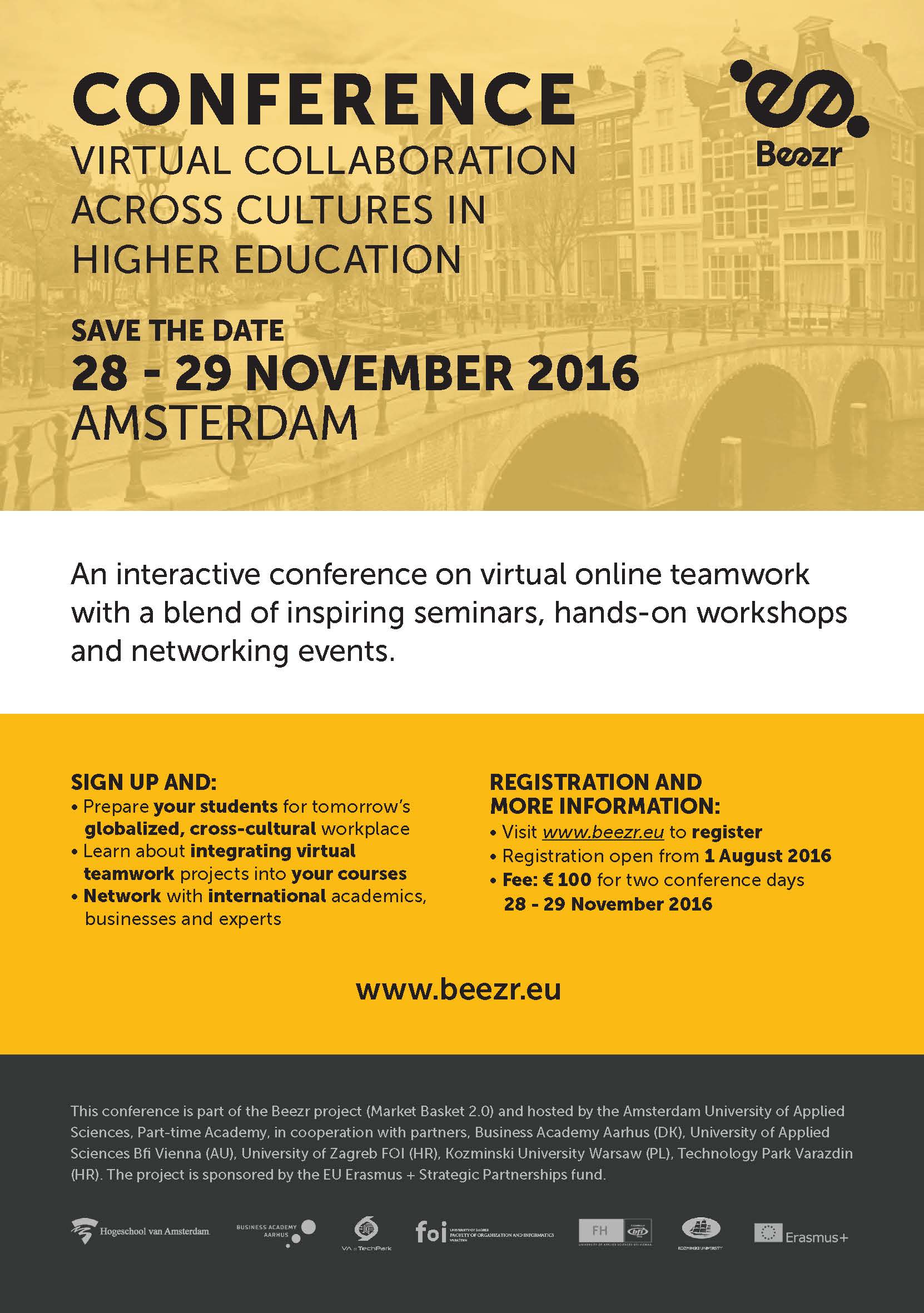
Final BEEZR Conference in Amsterdam
On 28 and 29 November 75 guests from fifteen different countries visited the Beezr conference in Amsterdam. This was the final and concluding conference of the project that started two years ago.
Time to look back and look ahead. What has been achieved and how will the Beezr project be continued? Why is working in virtual teams such an important career skill for students and how should it be integrated into higher education across Europe?
Future of Virtual teamwork already here
During the conference both the perspective from the business world as well as the educational side of virtual collaboration were highlighted. The audience, consisting of 75 educational managers and lecturers in Higher Education from about 15 different countries, felt the urgency of the message when key note speaker Liat Shentser, manager at Cisco Systems, confirmed that virtual teamwork is not the future but it is already very much here. ‘Graduate students need to be taught the skills how to function in such teams consisting of colleagues in many different countries and from many different cultures’.
Liat Shentser also described her methods of managing virtual teams. Her team members choose the tasks they feel fit them best. She stressed the importance of the social side of teamwork aspect of getting to know each other and spending time to talk about things besides work. ‘This builds a team spirit and motivates team members’, according to Liat Shentser.
Developing the right skills
Key note speaker Dr Robert Coelen, Professor for Internationalisation of Higher Education at Stenden University of Applied Sciences, stressed the growing importance of developing the required skills, rather than focussing on content and theory. How to integrate Project Based Learning? How do you get the students to work together who are not at all motivated to work together? ‘We try to pick up what business need, but we need to start with collaborative group learning at a much earlier age, already in primary school’ said Dr Robert Coelen.
Evaluating virtual student teamwork projects
A failed project might not have failed at all, because the experience which students achieve could already be a good result. How can this best be evaluated? Or should just the result be evaluated? Even a less than successful project could be a very valuable learning experience for students. Educational institutions, such as the Amsterdam University of Applied Sciences benefit greatly from the interaction with companies in the real cases which students work in virtual teams.
Sharing ideas for future virtual collaboration projects
Many contacts were made during the conference, matchmaking session and the boat trip and dinner. During the many workshops and interactive sessions participants shared their ideas for future virtual collaboration projects. At the end of the conference the feedback of the participants showed that they very much appreciated meeting so many like-minded colleagues.








